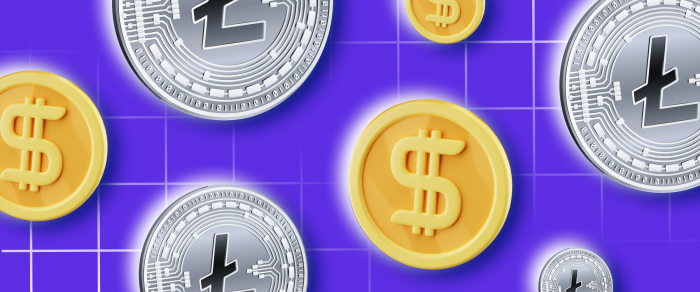What to Expect for Bitcoin, ApeCoin, and Ripple in Asia on 28th July
As the sun rises over the Asian markets on the 28th of July, investors and traders eagerly await the developments in the cryptocurrency world. Bitcoin, ApeCoin, and Ripple, three prominent players in the digital asset space, have been the subject of intense speculation and price movements. The Asian trading session holds significant importance in shaping the trends for these cryptocurrencies, with potential implications for the global market.
BTC Halving Effects – Prospects for Investors and Miners
Bitcoin halving, a highly anticipated event for cryptocurrency traders and investors, can potentially boost their profits. However, BTC miners have concerns about the future. This event, slated for April or May 2024, could mark a new phase of bullish momentum for Bitcoin, pushing its prices to record highs. While traders are excited about this event, miners are worried about its impact on their operations.
Bitcoin Halving Countdown Persists: Traders and Investors Awaiting New Cycle
The countdown to Bitcoin’s (BTC) halving continues, with approximately eight months remaining. Traders and investors are eagerly anticipating the upcoming cycle and its potential outcomes. Throughout previous cycles, this event has consistently ushered in a year-long bullish market, marked by Bitcoin’s price reaching new all-time highs.
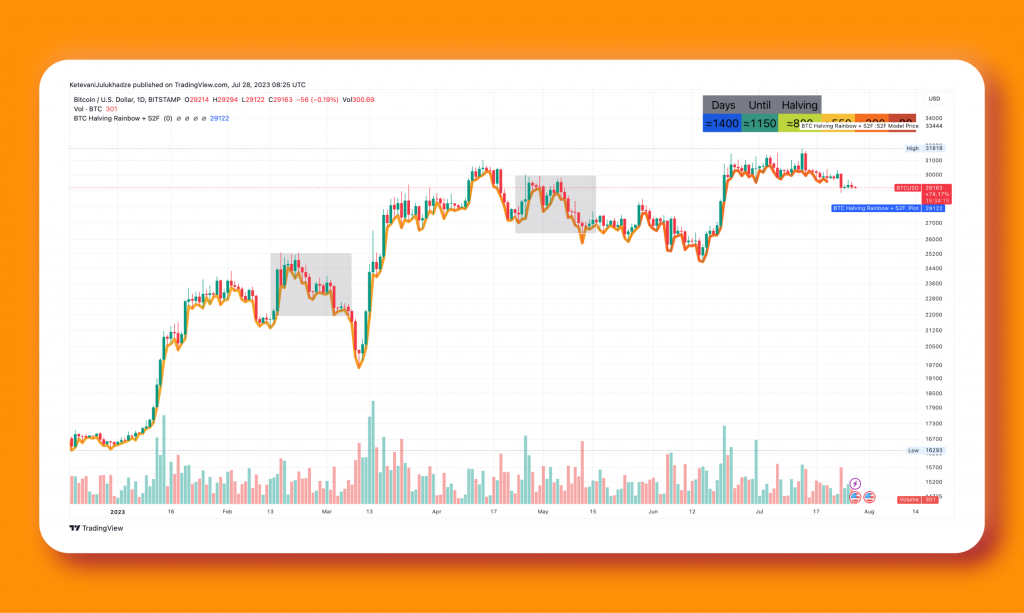
Subsequently, a bear market typically follows, lasting for one year. However, with a subsequent two-year recovery phase, Bitcoin strives to regain its previous peak. The BTC market is in this crucial stage, leaving investors eagerly anticipating its progression.
High Volume Spotted in BAYC, ApeCoin Price Unaffected
Since mid-June, ApeCoin’s price has been hovering around the $2 mark, showing little recovery despite the overall volatility in the crypto market. Initially, this lack of progress was attributed to the decline in the NFT market, which reduced demand for the token linked to the BAYC collection.
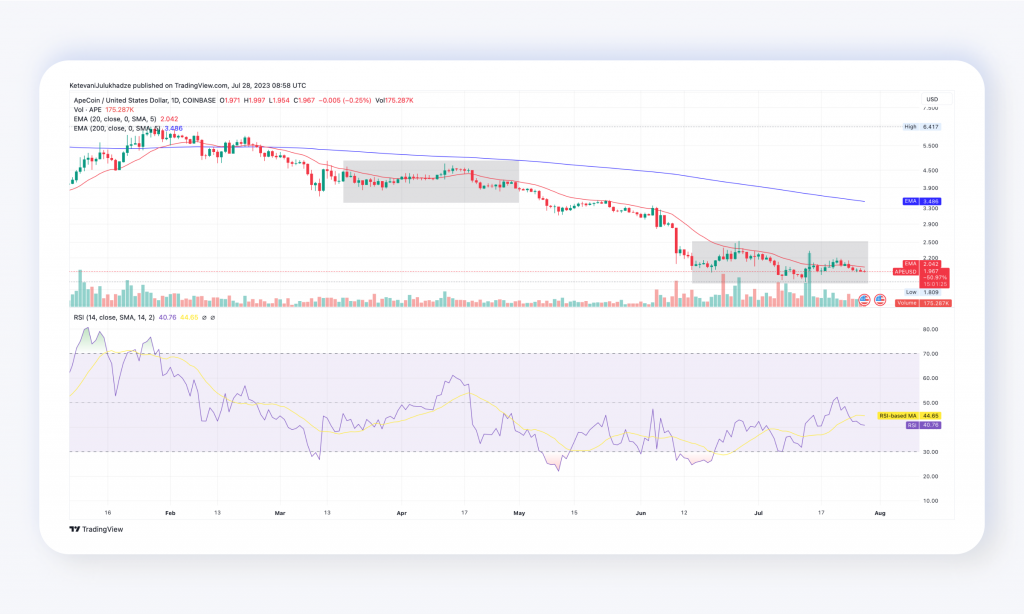
This observation held until mid-July when the floor price of the BAYC collection experienced a continuous decline, eventually reaching an all-time low of 29.98 ETH ($56,000). Within a month, the floor price dropped by 27% from its previous value of 47 ETH ($77,000). Simultaneously, the total volume of NFTs traded also saw a rapid decrease.
Despite the fluctuations and challenges, ApeCoin’s price has been stagnant at around $2, and the NFT market’s struggles have further impacted the demand for this altcoin.
Over the past week, there has been a notable shift in the dynamics of the BAYC collection. It experienced a surge in total sales, reaching a volume peak of $13 million, a level not seen in the past month and a half. Surprisingly, this surge had no impact on the price action of ApeCoin, which has been trading just below the 50-, 100-, and 200-day Exponential Moving Averages (EMAs) for the last three months.
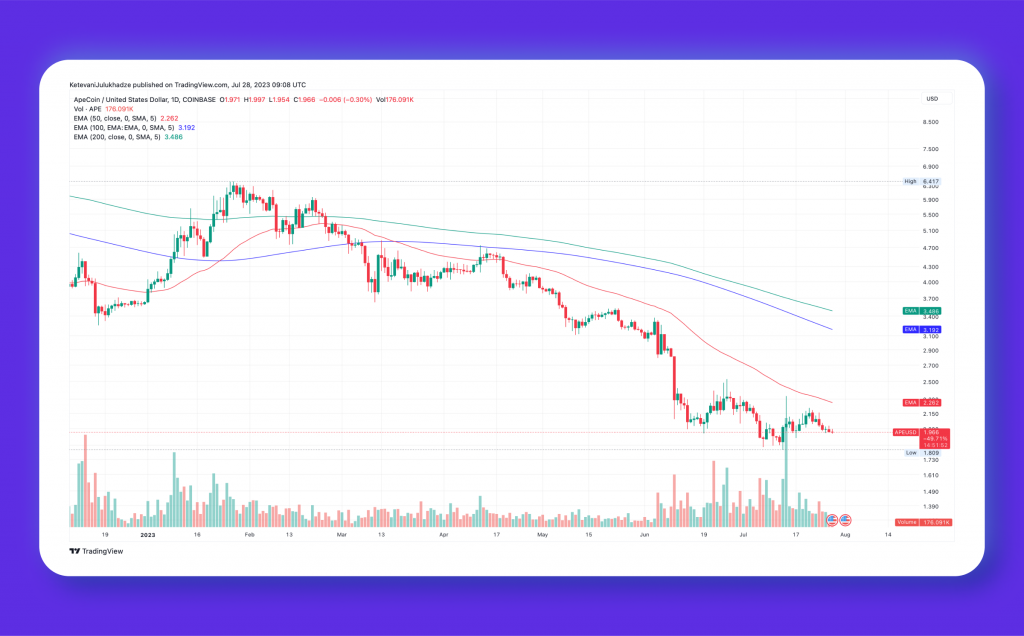
This situation is concerning for investors as it indicates that the condition of the NFT market no longer influences the ApeCoin price. Moreover, broader market trends also seem to have little control over the price movement of ApeCoin.
The Price of Ripple is Rising
- Retail XRP holders, according to a top international expert on technology policy, are the primary beneficiaries of Judge Torres’ decision.
- Rosalyn Clayton refers to the holders as “victims of regulatory overreach” and praises the judge for “schooling” the SEC.
- Ripple CEO Brad Garlinghouse and board chair Chris Larsen were exonerated in the judgement for their XRP sales.
Meanwhile, Ripple’s price is steadily consolidating in an upward direction, following an ascending trendline. However, it faces selling pressure near the 50-day Exponential Moving Average, located at $0.72. The overall outlook remains positive as long as XRP maintains its position above the 100-day EMA at $0.69. A critical breach below the support level of $0.66 might open the door to further losses, potentially erasing the gains made on July 13.
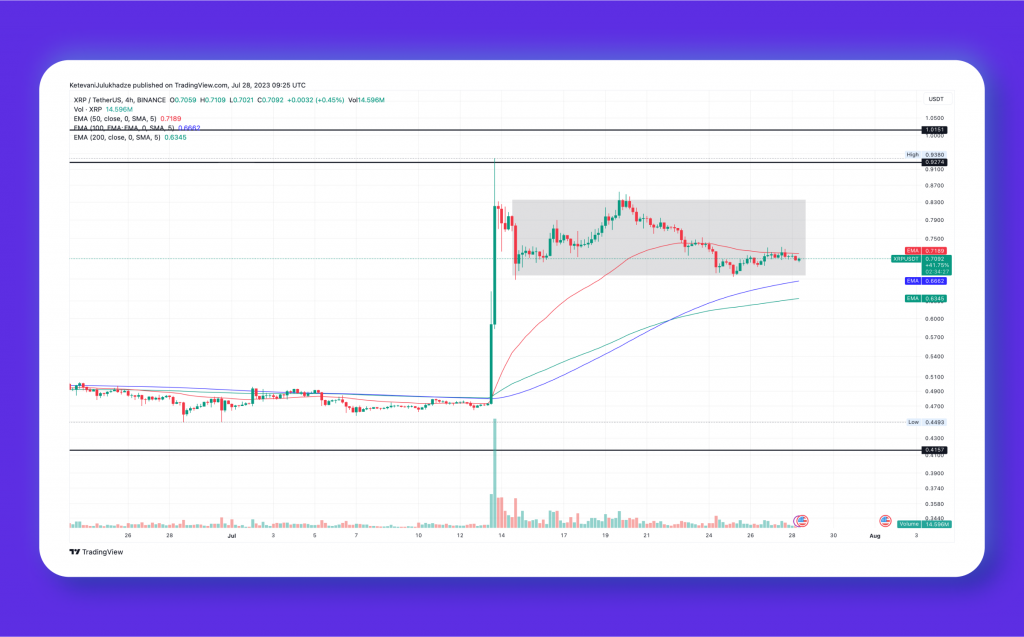
Conversely, renewed buying momentum is possible, particularly as sidelined investors or those who missed the recent 70% rally seek an entry point. Should this buying pressure materialise, it may help Ripple’s price to stay above the uptrend line and potentially reclaim the range high. In an exceptionally bullish scenario, XRP could even reach the target of $1.00.
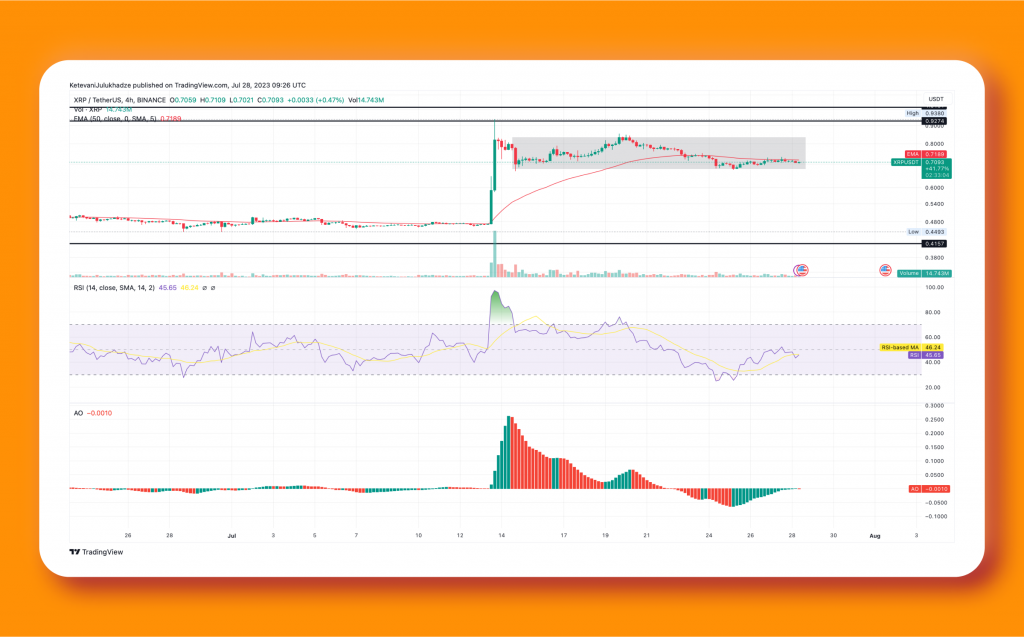
Bottom Line
As the Asian trading session concludes on the 28th of July, Bitcoin, ApeCoin, and Ripple have left investors and traders with a mix of emotions and outcomes. While Bitcoin’s price stability might instil confidence in some, others may remain watchful of its potential breakout.
